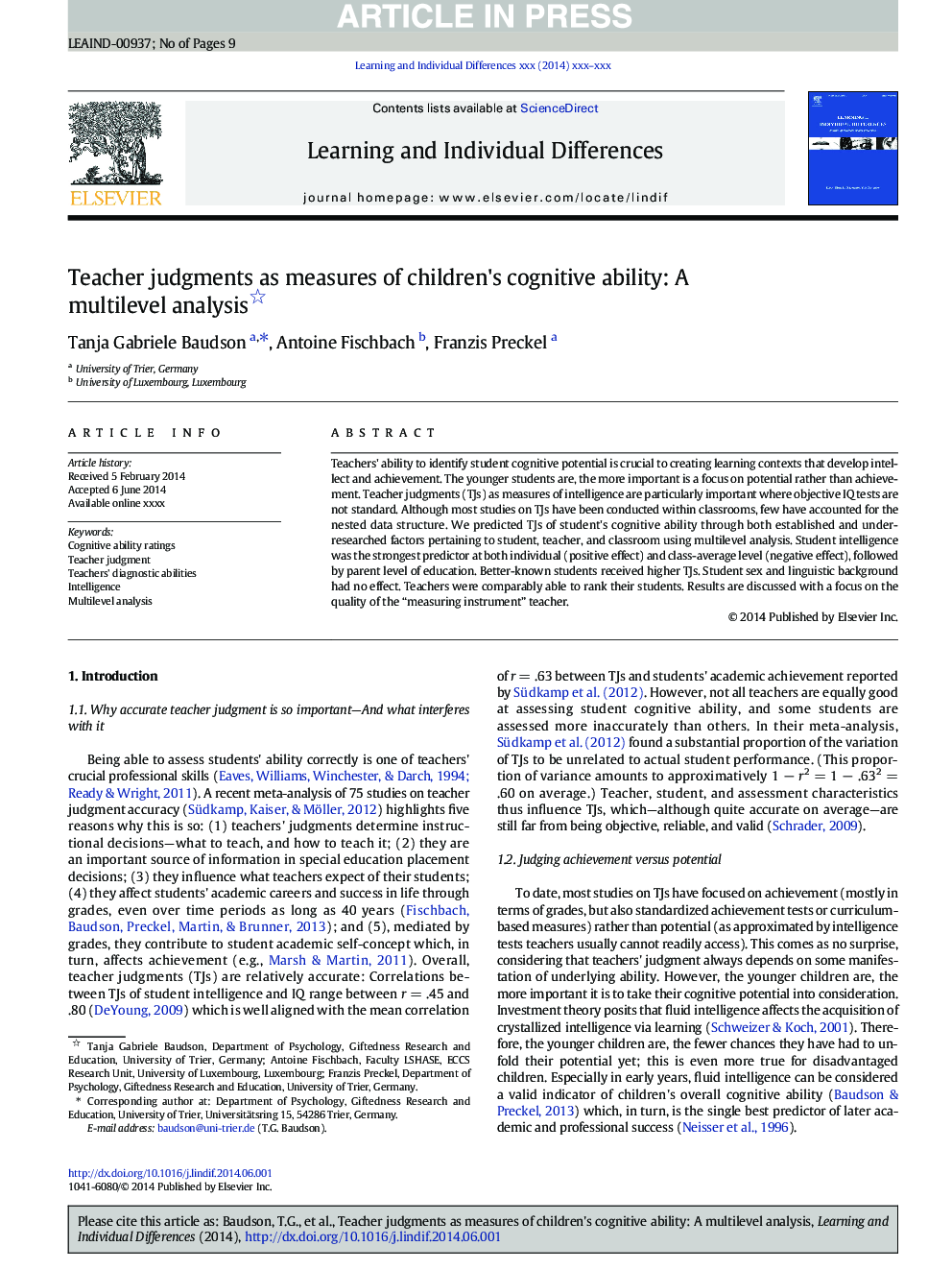| Article ID | Journal | Published Year | Pages | File Type |
|---|---|---|---|---|
| 4940080 | Learning and Individual Differences | 2016 | 9 Pages |
Abstract
Teachers' ability to identify student cognitive potential is crucial to creating learning contexts that develop intellect and achievement. The younger students are, the more important is a focus on potential rather than achievement. Teacher judgments (TJs) as measures of intelligence are particularly important where objective IQ tests are not standard. Although most studies on TJs have been conducted within classrooms, few have accounted for the nested data structure. We predicted TJs of student's cognitive ability through both established and under-researched factors pertaining to student, teacher, and classroom using multilevel analysis. Student intelligence was the strongest predictor at both individual (positive effect) and class-average level (negative effect), followed by parent level of education. Better-known students received higher TJs. Student sex and linguistic background had no effect. Teachers were comparably able to rank their students. Results are discussed with a focus on the quality of the “measuring instrument” teacher.
Related Topics
Social Sciences and Humanities
Psychology
Developmental and Educational Psychology
Authors
Tanja Gabriele Baudson, Antoine Fischbach, Franzis Preckel,
